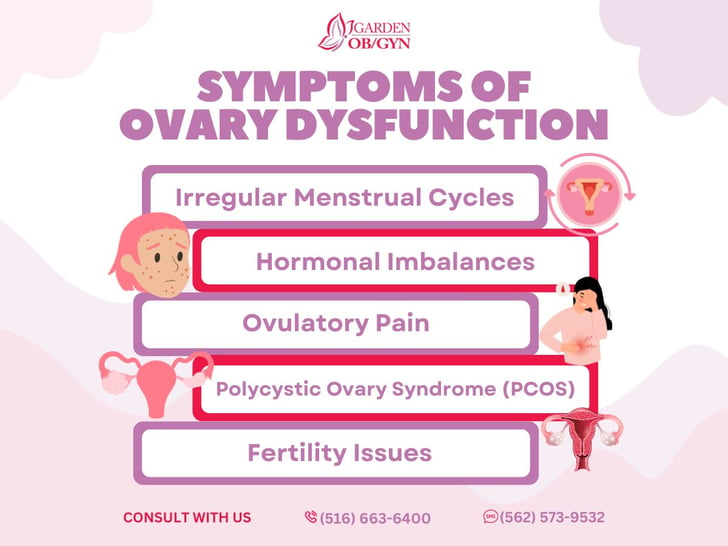Understanding Symptoms of Ovary Dysfunction
Ovary dysfunction can cause health issues, emphasizing the need for early detection. This article explores key signs of ovarian dysfunction for effective management.

The female reproductive system is a complex network of organs that work together to regulate a woman's reproductive health. Among these crucial components are the ovaries, small almond-shaped organs that play a pivotal role in the menstrual cycle and fertility. Ovary dysfunction, a condition where the ovaries fail to function properly, can lead to various health issues. Recognizing the symptoms of ovary dysfunction is crucial for early detection and effective management. In this article, we will explore the common signs that may indicate ovarian dysfunction.
- Irregular Menstrual Cycles:
One of the primary indicators of ovary dysfunction is irregular menstrual cycles. Ovulation, the release of an egg from the ovary, is a key event in the menstrual cycle. When the ovaries are not functioning correctly, ovulation may be irregular or absent, resulting in irregular periods. Women with ovary dysfunction may experience unusually long cycles, missed periods, or unpredictable bleeding.
- Hormonal Imbalances:
Ovaries play a crucial role in producing hormones such as estrogen and progesterone. A dysfunction in the ovaries can lead to hormonal imbalances. Symptoms of hormonal fluctuations may include mood swings, changes in libido, and disruptions in the skin, such as acne or excessive dryness. Hormonal imbalances can also affect other systems in the body, leading to fatigue, weight gain or loss, and disruptions in sleep patterns.
- Ovulatory Pain:
While some women may not experience any pain during ovulation, others may feel a dull ache or cramping in the lower abdomen. This discomfort, known as mittelschmerz, is usually mild and temporary. However, persistent or severe ovulatory pain can be a sign of ovary dysfunction or other underlying issues and should be evaluated by a healthcare professional.
- Polycystic Ovary Syndrome (PCOS):
Polycystic Ovary Syndrome, or PCOS, is a common condition associated with ovary dysfunction. Women with PCOS often have enlarged ovaries containing small cysts. Symptoms of PCOS include irregular periods, excessive hair growth, acne, and difficulty getting pregnant. PCOS is a hormonal disorder that requires careful management to address its various symptoms and prevent long-term health complications.
- Fertility Issues:
Ovary dysfunction can significantly impact fertility. Women trying to conceive may face challenges due to irregular ovulation or the absence of ovulation. If pregnancy is not achieved after a year of regular unprotected intercourse, it is advisable to seek medical attention to explore potential causes, including ovary dysfunction.
- Menopausal Symptoms:
As women approach menopause, the ovaries naturally reduce hormone production, leading to the end of menstrual cycles. However, premature ovarian failure or early menopause can occur due to ovary dysfunction, resulting in menopausal symptoms such as hot flashes, night sweats, and mood swings at an earlier age than expected.
Understanding the symptoms of ovary dysfunction is crucial for timely diagnosis and appropriate management. If you are experiencing irregular menstrual cycles, hormonal imbalances, persistent ovulatory pain, fertility issues, or other concerning symptoms, it is essential to consult with a healthcare professional. Early detection and intervention can help address ovary dysfunction and improve overall reproductive health, enabling women to lead fulfilling and healthy lives.
































